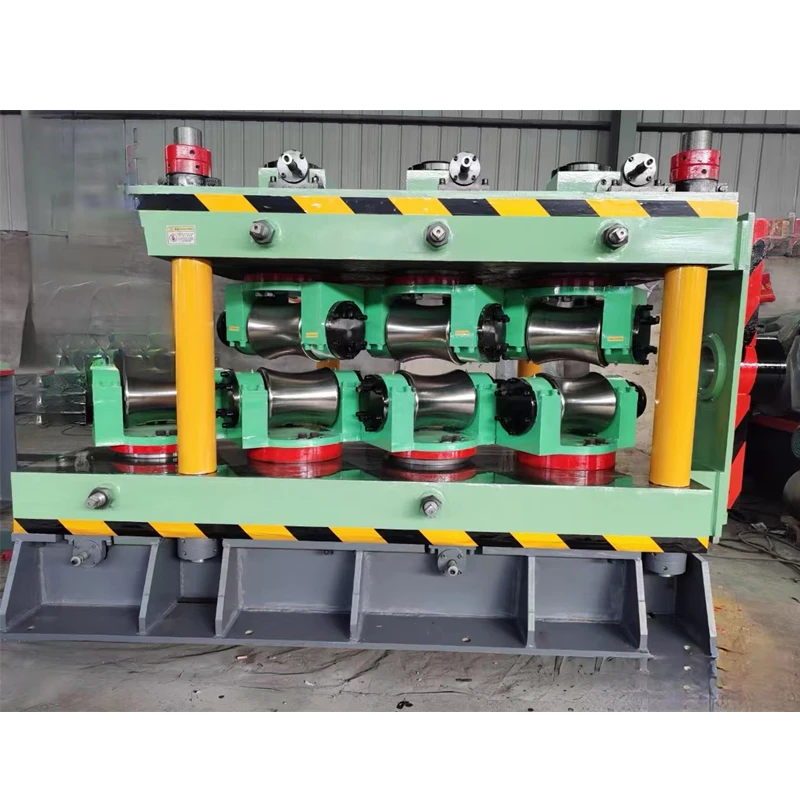Advanced Technologies in Pipe Mill Machinery for Efficient Production
The Evolution and Significance of Pipe Mill Machines
In the modern industrial landscape, pipe mill machines play a crucial role in the manufacturing of steel pipes, which are essential components in various sectors including construction, oil and gas, and infrastructure development. These machines have evolved significantly over the decades, making the production process more efficient, cost-effective, and adaptable to the diverse needs of the market.
Historical Background
The history of pipe mill machines dates back to the industrial revolution when the demand for metal pipes surged due to the advancement in technology and infrastructure. Early pipe manufacturing was labor-intensive, relying on manual processes which were not only time-consuming but also prone to errors. The introduction of mechanized systems marked a turning point in pipe manufacturing, as it allowed for greater consistency, speed, and scalability.
Types of Pipe Mill Machines
There are several types of pipe mill machines, each designed for specific applications
. The most common types include1. ERW Pipe Mills Electric Resistance Welding (ERW) pipe mills are widely used for producing high-frequency welded pipes. The process involves bending a flat strip of steel into a tubular shape and welding the edges together using electric resistance. This method is favored for its speed and the ability to produce pipes in various diameters and thicknesses.
2. SSAW Pipe Mills Spiral Submerged Arc Welding (SSAW) pipe mills utilize a spiral welding technique to produce larger diameter pipes. This method involves feeding a hot steel strip into a spiral forming machine and welding the edges using submerged arc welding. The resulting pipes are ideal for applications requiring high strength and durability, such as oil and gas transportation.
3. LSAW Pipe Mills Longitudinal Submerged Arc Welding (LSAW) mills are used for manufacturing large diameter pipes with a longitudinal welding seam. The process begins with large steel plates that are bent into a cylindrical shape and then welded along the seam. LSAW pipes are often used in high-pressure applications due to their strength and resistance to deformation.
pipe mill machine

Advancements in Technology
The advancements in technology have led to remarkable improvements in the efficiency and capabilities of pipe mill machines. Automation has become a key component in modern mills, allowing for real-time monitoring and adjustments during the production process. This not only enhances the quality of the finished product but also minimizes waste and downtime.
Moreover, the integration of computer numerical control (CNC) technology has transformed the manufacturing process. CNC machines provide precise control over the dimensions and tolerances of the pipes, ensuring that every piece meets strict industry standards. This level of precision is essential in industries where safety and reliability are paramount.
Environmental Considerations
As industries evolve, so too do the environmental considerations associated with manufacturing processes. Pipe mill machines have been designed with sustainability in mind, incorporating energy-efficient components and processes that minimize the use of raw materials. For instance, recycling systems are now common in many pipe mills, allowing for the reuse of scrap metal and reducing the overall environmental footprint.
Additionally, many manufacturers are exploring alternative materials and processes that further reduce environmental impact. Innovations such as using carbon-neutral steel and developing efficient waste management systems are becoming increasingly important in the pipe manufacturing industry.
Future Prospects
The future of pipe mill machines appears promising, with ongoing advancements in technology and increased demand for infrastructure development worldwide. As global economies grow and urbanization continues, the need for reliable and efficient piping solutions will remain critical. Manufacturers are expected to continue investing in research and development to create more advanced pipe mill machines that can accommodate the evolving demands of the market.
In conclusion, pipe mill machines are a cornerstone of modern manufacturing, enabling the production of high-quality pipes that are vital for various industries. With continuous innovations and a focus on sustainability, the future of pipe mill technology holds great potential, contributing to the efficient and responsible growth of infrastructure around the globe. As we move forward, the importance of these machines will only continue to rise, highlighting their significance in shaping the world we live in today.
-
High Frequency Straight Seam Welded Pipe Production Line-BzZhou Xinghua Machinery Equipment Manufacturing Co., LTD.|Precision Welding, High EfficiencyNewsJul.30,2025
-
High Frequency Straight Seam Welded Pipe Production Line|BzZhou Xinghua|Precision Welding&EfficiencyNewsJul.30,2025
-
High Frequency Straight Seam Welded Pipe Production Line - BzZhou Xinghua|Precision Engineering&EfficiencyNewsJul.30,2025
-
High-Frequency Straight Seam Welded Pipe Production Line-BzZhou Xinghua Machinery Equipment Manufacturing Co., LTD.NewsJul.30,2025
-
High-Frequency Straight Seam Welded Pipe Production Line-BzZhou Xinghua Machinery Equipment Manufacturing Co., LTD.|Precision Manufacturing, High EfficiencyNewsJul.30,2025
-
High Frequency Straight Seam Welded Pipe Production Line-BzZhou Xinghua Machinery Equipment Manufacturing Co., LTD.|Precision Steel Pipe Manufacturing&Industrial EfficiencyNewsJul.29,2025


